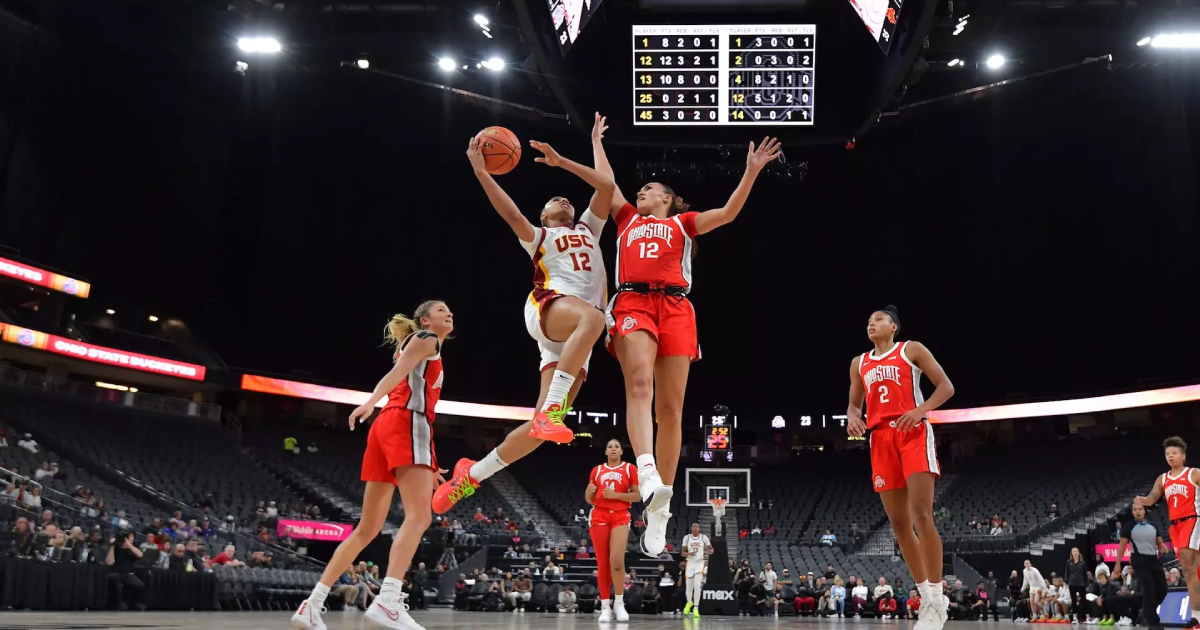Women’s Sports Quicken the Pace for Licensing

By Mark Seavy
As the popularity of women’s sports continues to grow, licensing is coming into play at an ever-faster pace.
Traditionally, leagues have waited several seasons before embarking on a licensing program to build an engaged fan base. But with technology platforms like print-on-demand and the rise of social media helping to drive marketing, fan interest in licensed merchandise can be piqued even before a season starts.
The Professional Women’s Hockey League (PWHL) for example, only began in January. But even before the first puck dropped, the league had licensing deals for trading cards (Upper Deck) and uniform kits (Under Armour). In fact, the PWHL Players Association gave the league the right use likenesses of three or more players for group licensing two years before play began.
And Grand Slam Track, a professional circuit headed by Olympic gold medal sprinter Michael Johnson, launches its first event in Jamacia in April featuring 96 men and women participating in a series of events. It has signed licensing deals for apparel (streetwear and sportswear supplier The Realest) and trading cards (Parkside Collectibles).
The three-on-three Unrivaled women’s basketball league, meanwhile, licensed Panini America for a set of 35 trading cards that will be part of a direct-to-consumer program that includes player highlights of its just completed first season, which ended with the league championship on March 17th. And that was after Panini signed a licensing agreement with the Women’s National Basketball Association (WNBA) and added collegiate women’s basketball in deals with Caitlin Clark and Paige Bueckers for trading cards and memorabilia. University of Southern California sophomore guard JuJu Watkins also signed a multiyear trading cards and memorabilia deal with Fanatics earlier this year.
“It is definitely coming earlier in terms of identifying the women athletes and leagues… and building products to feature them,” said Jason Howarth, SVP of Marketing and Athlete Relations at Panini. “If you asked me three years ago, ‘Are you going to sign a kid that is going into their senior year in high school?’ I would have said you were crazy, but here we are. The cycle of introducing licensing has certainly come earlier.”
Yet while the cycle has increased in speed, the path that teams travel for licensing hasn’t changed much. Deals typically start with categories like videogames, trading cards, and jerseys. Take-Two Interactive, for example, added the WNBA to its NBA 2K videogame in 2020 and, by last year, the Las Vegas Aces center A’Ja Wilson was gracing the cover of the WNBA 2K edition.
Parkside Collectibles, which started in trading cards with the National Women’s Soccer League (NWSL) in 2020, produced 3,000 cards for the first run in 2020 and sold 2,750 of them within the first 36 hours. The remaining 250 eventually sold out as well. Trading cards typically carry a 12-15% royalty each for the player and league, industry executives said.
The faster speed at which licensed women’s sports products are coming to market has also been supported by wider distribution channels that extend beyond brick-and-mortar retail and build on eCommerce. Panini, for example, has a Panini Instant POD system that can produce WNBA cards featuring in-game highlights within 36 hours. Rival Fanatics’ Topps has a similar program.
“The one thing that is different from years ago is the acceptance [from retailers] and the distribution channels available,” Howarth said. “It used to be that you had to fight your way onto shelves at mass retail and get a level of acceptance in the hobby shops. It is important to get on the shelves of Walmart and Target, but there are certainly other ways of reaching that audience now and you no longer have to rely solely on the mass and hobby channels.”
In reaching that audience, women’s sports are also benefitting from increased investment, licensing executives said. The PWHL is said to have a 10-year business plan and has the financial backing of Mark Walker Group, which also owns baseball’s Los Angeles Dodgers. Unrivaled has raised $35 million from investors that include Milwaukee Bucks star center Giannis Antetokounmpo, Fenway Sports partner Linda Henry, Olympic swimming champion Michael Phelps, and former Bucks minority owner Marc Lasry. Warner Bros. Discovery, which signed a multiyear media rights deal, is also an investor.
“There are smart business people who are looking at the metrics around women’s sports and they are paying attention to the fact that the fan base is there and for collectors looking for long-term growth, it’s an investment,” said Steve Scebelo, President of the REP Worldwide agency. “They know the growing fan base is going to drive the value of the investment they are making.”




